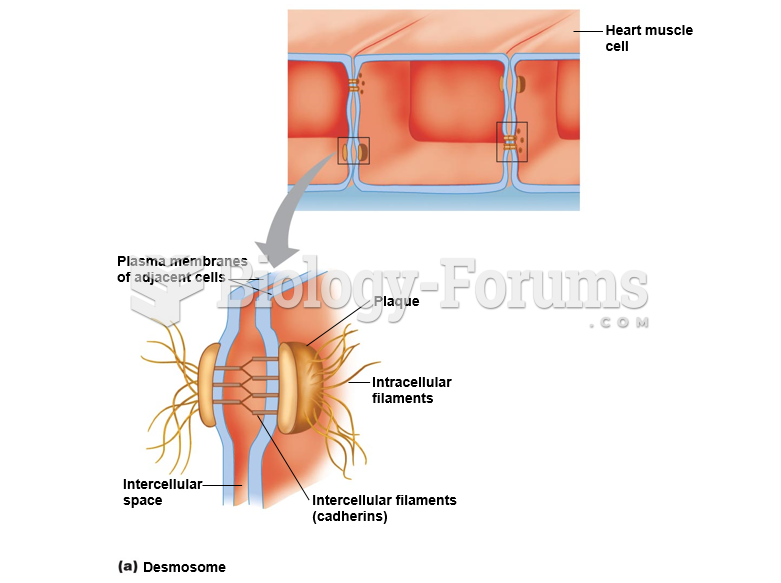|
|
|
Earwax has antimicrobial properties that reduce the viability of bacteria and fungus in the human ear.
Despite claims by manufacturers, the supplement known as Ginkgo biloba was shown in a study of more than 3,000 participants to be ineffective in reducing development of dementia and Alzheimer’s disease in older people.
About 60% of newborn infants in the United States are jaundiced; that is, they look yellow. Kernicterus is a form of brain damage caused by excessive jaundice. When babies begin to be affected by excessive jaundice and begin to have brain damage, they become excessively lethargic.
Blood is approximately twice as thick as water because of the cells and other components found in it.
Blood in the urine can be a sign of a kidney stone, glomerulonephritis, or other kidney problems.







